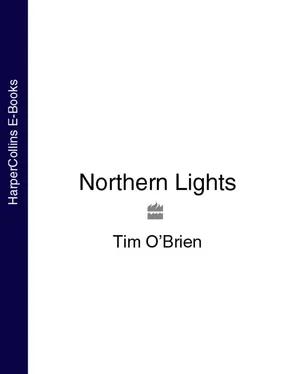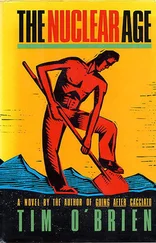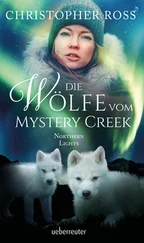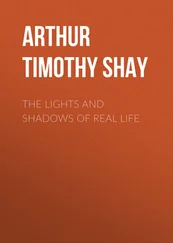Tim O’Brien - Northern Lights
Здесь есть возможность читать онлайн «Tim O’Brien - Northern Lights» — ознакомительный отрывок электронной книги совершенно бесплатно, а после прочтения отрывка купить полную версию. В некоторых случаях можно слушать аудио, скачать через торрент в формате fb2 и присутствует краткое содержание. Жанр: unrecognised, на английском языке. Описание произведения, (предисловие) а так же отзывы посетителей доступны на портале библиотеки ЛибКат.
- Название:Northern Lights
- Автор:
- Жанр:
- Год:неизвестен
- ISBN:нет данных
- Рейтинг книги:5 / 5. Голосов: 1
-
Избранное:Добавить в избранное
- Отзывы:
-
Ваша оценка:
- 100
- 1
- 2
- 3
- 4
- 5
Northern Lights: краткое содержание, описание и аннотация
Предлагаем к чтению аннотацию, описание, краткое содержание или предисловие (зависит от того, что написал сам автор книги «Northern Lights»). Если вы не нашли необходимую информацию о книге — напишите в комментариях, мы постараемся отыскать её.
Northern Lights — читать онлайн ознакомительный отрывок
Ниже представлен текст книги, разбитый по страницам. Система сохранения места последней прочитанной страницы, позволяет с удобством читать онлайн бесплатно книгу «Northern Lights», без необходимости каждый раз заново искать на чём Вы остановились. Поставьте закладку, и сможете в любой момент перейти на страницу, на которой закончили чтение.
Интервал:
Закладка:
The Germans came later. The Germans came late enough to see that their future was not in the land. Instead they opened taverns and a hardware store and an implement shop, taking the Swedes’ money, extending credit, turning the bundle of tiny farms into a hamlet. Within a few years it became a predominantly German village, both in numbers and power, but the Swedes still remained vital to the tight circle of economics, because without them there was no need for German shops. Old World rivalries persisted, and Perry heard the story often: In 1863 a meeting was convened to choose the village’s soldiers for the war against slavery. No one understood the war, but everyone wanted to fight it. They hadn’t heard how many were dying. At the meeting it was decided that only a few could go, and after hours of haggling the number was fixed at fourteen, a quarter of the able-bodied men. The Germans, citing their new predominance, insisted on supplying ten of the fourteen. The Swedes wanted the war party split equally, arguing that they’d been the first to settle the forest, that they had eight more corpses in the cemetery, and that their farming sustained the small community. In short, Perry’s father had explained with relish, in short they were arguing about the right to die. ‘Well,’ the old man said, telling the story, ‘the Germans threatened to foreclose on two mortgages. Herb Wolff’s great-grandfather was one of the bastards. Anyhow, the Swedes told them to go to hell, threatening to take their corn and trade into Two Harbors. So the krauts threatened to close down their shops. And the Swedes threatened to boycott the shops. And the krauts threatened no more credit. On and on. Well, next thing you know there’s a scuffle and somebody knocks over a lamp and the meeting hall catches fire, threatening a forest fire, threatening everything. And that, if you see the point, that was the final threat.’
‘Yes,’ Perry had said.
‘And what’s the point?’
‘A big forest fire. The end of the whole village.’
‘Exactly,’ the old man had crowed, opening his Bible. ‘The end of everything. The end of the world.’ His voice rang like an old bell.
In the end, a single young Swede went to the war and fought with the Minnesota First at Gettysburg. He was buried in the Swedish half of the cemetery, solidifying the Scandinavians’ grasp on the land, another root sunk deep in. For reprisal, the Germans convened a secret meeting and voted to change the name of the place from Rabisholm to New Köln. The Swedes simply ignored the vote, and until 1887 the village had two names and the matter was taken quite for granted.
In 1887, the timber companies moved in.
They built their sawmill on Dunkle Creek and named the place Sawmill Landing.
It became a logging town – a town now and not a village. Simple frame houses went up, each identical to the next with their wide porches and crawl spaces and stone fireplaces and upstairs bedrooms. It became a company town. Using the sawmill as a hub, the timber companies laid the streets like spokes into the forest, seven spokes that radiated into the timberlands, and as the forest was cut and gutted, the spokes were simply extended and the town expanded. Each spoke was given a name: Acorn Street, Larry’s Lane, Moose Street, Apple Street, Broken Axle Road, Sawmill Street and Mainstreet.
For nearly thirty years the logging companies ran the town, and the population climbed over a thousand. A school was built. And a jail and a town hall. The timber companies tarred Mainstreet and cut a highway out to North Shore Drive. An undertaker set up shop. A railroad spur was laid, a depot was built, new wells were dug, a water tower went up. The timber companies built a pulp mill and a planing mill, changed Ole Borg Day to Paul Bunyan Day, and, indirectly through the labours of their wage earners, paid for the construction of Damascus Lutheran Church. ‘That,’ Perry’s father had said with a customary spit at progress, ‘that was the only decent thing.’
The timber companies also brought a second wave of Finns into Sawmill Landing. They were gaunt families, blank-eyed and harsh and disciplined by tundra spirits, wide foreheads and black eyes and strong arms. Among the new Finns was Perry’s own grandfather.
The facts of Pehr Peri’s life were as bare and brittle as the scattered bones of some ancient reptile. All that was known came from the memory of Perry’s father and from a tiny packet of papers buried in the attic. Up to a point the story was typical. Pehr Peri was born in a fishing community north of Helsinki. At sixteen, for reasons unknown, he boarded a boat for America, spent a year of near starvation in Baltimore, worked his way west to St Louis, then boarded another boat that took him up the Mississippi as far as Red Wing.
For the next five years, young Pehr Peri was swallowed in a dark succession of lumber camps and pine forests, gradually moving north with the advancing timber companies, working first as a shanty boy, later as a swarmer hacking branches from felled trees, and finally as a fully-fledged lumberjack. While the specific events of that lustrum were murky, it was probably the story of thousands like him: immigrants homesick for the Old World, hard winters, danger, relentless work, fist fights, mosquitoes and loneliness and barracks yarns, campfires and boredom, northern hardships, frontier trials. Whatever the specifics, Pehr Peri emerged at the age of twenty-two in a camp outside Sawmill Landing – tall and strong, virtually illiterate, speaking a hybrid of Finnish and English and Norwegian, unmarried. And the father of a young son.
Sometime during those dark five years, in circumstances that could only be imagined, the young Pehr Peri had spent enough time out of the cold to sire a son, to see it through birth and to take the child with him. It was never explained. The identity of the mother, as well as the means by which Peri gained custody of the boy, was never told. The only clue – a minor one – was that the child was baptized Pehr Lindstrom Peri, and it was assumed that the mysterious woman, wife or mistress or lover, belonged to one of nearly three hundred Lindstrom families scattered between Red Wing and Sawmill Landing. But it was never known. In customary and callous disregard for reminiscence, Pehr Peri raised the child as though he alone were responsible for its propagation, refusing to talk about the mother, ignoring the very fact of motherhood, an asexual northern temperament that excluded and eventually scorned things female. ‘I didn’t have a mother,’ Perry’s father once explained, ‘because I didn’t need one.’
For more than a year, Pehr Peri continued working the forests outside Sawmill Landing, leaving the child in the daytime care of assorted shanty boys, camp cooks or idlers. Then, in August of 1901, his right arm was crushed in an incident that again went unexplained. In one of the few scraps of paper he left behind, Peri referred to the accident as a ‘thing which happened’, accepting the crushed arm as a timber wolf might accept a broken leg, without bitterness or remorse, burning eyes, a natural thing of the north. Hardship was to be expected. At any rate, Perry’s grandfather was out of a job, saddled with a motherless child, crippled, stranded in a town that offered nothing but hard work. So he became a preacher.
Despite the contradictions and ironies – semi-literate, not a trace of prior religious zeal, barely able to speak English – Pehr Peri became a successful stump preacher, shuttling from camp to camp, travelling by foot with his young son and a secondhand Bible and a store of winter tales, preaching a mixture of folklore and Christianity and Finnish mythology, relying as much on his native Kalevala as on Matthew, Mark, Luke or John. In time he became something of a hero in the outlying camps. He spoke their idiom, shanty talk that blended accents with nationalities and common experience. And he was also a born preacher. A preacher, not a minister. His sermons called for no acts of repentance, offered no hope of salvation, anointed nobody, elected nobody, promised nothing to the choppers and swarmers and barkers, ignored heaven and delineated only hell. His promise was that things would get worse, and his theme was apocalypse: forest fire, death in the snow, a new Ice Age. He was a preacher of the elements, more pagan than Christian, appealing to the only true emotion of his frontier congregations, which was fear. Looking through a few of the old sermons, Perry saw in his grandfather a simple glacial floe and a frozen spirit. The sermons called merely for heroism. Urho , in the Finnish. Practised endurance, silent suffering, fortitude. His symbols were snow and timber wolves, the forest afire, the world ending, the town collapsing. His hero was the bull. The Bull of Karelia, a moose with antlers gone and head down in the dead of winter. Pehr Peri left the lumber camps with the certainty that there was no alternative but to go on, which was what everyone was best at anyway. So, with a reputation anchored in realities, it was a natural course of events that culminated in his assuming the pulpit of a brand-new church called Damascus Lutheran. And even with a congregation of shop owners and farmers and wives, Pehr Peri never relented in his stern predictions of hardship and collapse. The more vivid his prophecies, the more popular he became, drawing audiences from as far down as Two Harbors and as far north as Grand Marais. Never exhorting, he merely laid down hard principles: the strong will not survive forever, but they may survive longer than the weak; things are bad now but in the winter they will be much worse, so take advantage of the present and prepare for the future. Since his ultimate prophecy of doom was always rooted in stories of present suffering, and since there were always ample cases of forest fire, hard winters, drownings or freezings or death, he could never be faulted for poor vision nor accused of promising too much. He saw no hope and offered none. Strokes of good fortune, he reminded the Damascus Lutherans, are forever followed by bad fortune; summer to winter; birth to death; construction to destruction; the elements. He was never wrong. He preached simple heroism. What cannot be escaped must be endured, and if it must be endured it might as well be confronted.
Читать дальшеИнтервал:
Закладка:
Похожие книги на «Northern Lights»
Представляем Вашему вниманию похожие книги на «Northern Lights» списком для выбора. Мы отобрали схожую по названию и смыслу литературу в надежде предоставить читателям больше вариантов отыскать новые, интересные, ещё непрочитанные произведения.
Обсуждение, отзывы о книге «Northern Lights» и просто собственные мнения читателей. Оставьте ваши комментарии, напишите, что Вы думаете о произведении, его смысле или главных героях. Укажите что конкретно понравилось, а что нет, и почему Вы так считаете.












